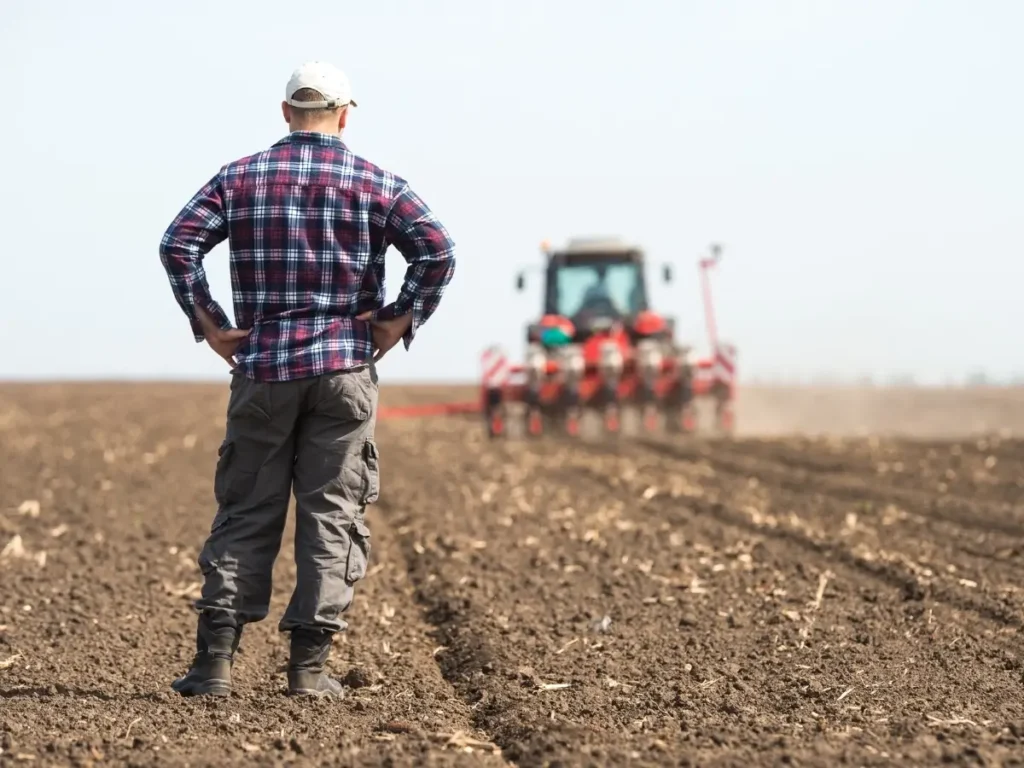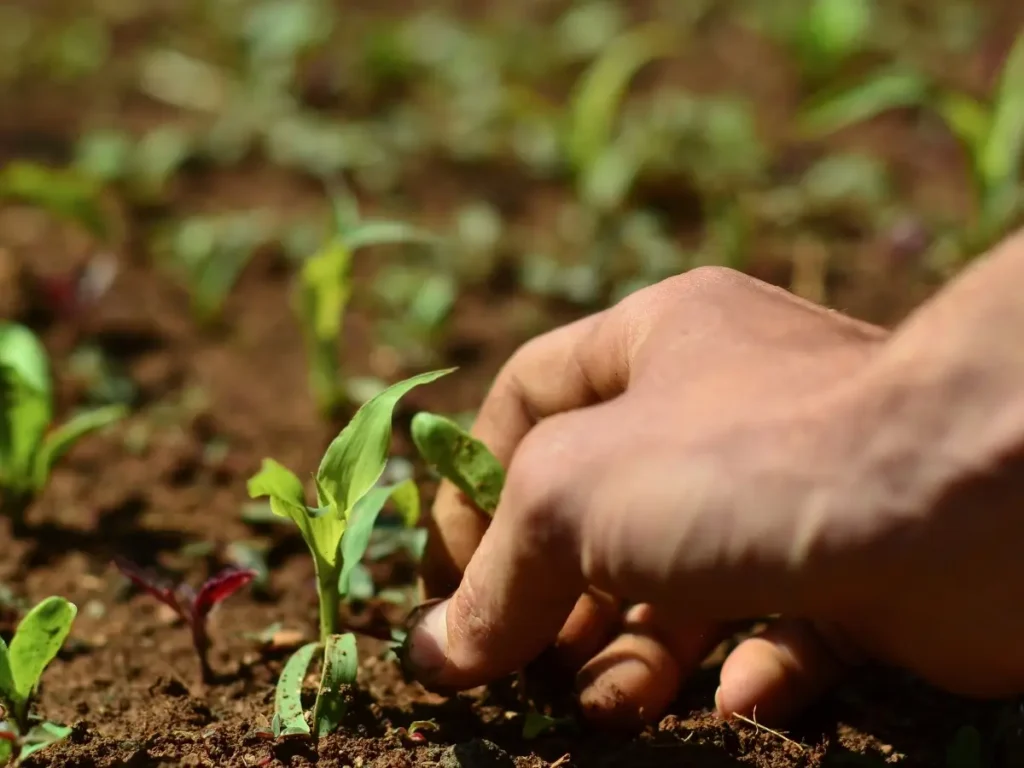Farming is a capital-intensive business. For many farmers, access to affordable credit is crucial to keep their operations running. However, having a bad credit history can be a significant obstacle in securing financing. So, can farmers with a bad credit history get financial support?
Unfortunately, the answer is not straightforward. While traditional lending institutions, such as banks, have strict criteria for loan eligibility, there are alternative financing options available for farmers with bad credit. It’s essential to understand the impact of bad credit on the financial options available to farmers and the steps they can take to improve their creditworthiness.
Having bad credit is a significant obstacle for farmers seeking financial options. A low credit score can limit lending options and increase the cost of borrowing, making it challenging for farmers to access the finances they need to invest in their farms, equipment, or livestock.
Bad credit can also affect the interest rates, loan terms, and collateral requirements of the loans available to farmers. Traditional banks and lenders typically have strict eligibility criteria for farmers with bad credit, such as high credit score requirements and a long credit history.
For example, a farmer with bad credit who needs a loan to invest in new equipment may struggle to find a lender willing to take a risk on them. Their credit score may lead the lender to assume that they are a high-risk borrower and reduce the size of the loan or impose higher interest rates.
Moreover, bad credit can also impact the ability of farmers to secure government-backed loans or participate in agricultural grants programs.
Improving their credit score can help farmers expand their financial options and increase their chances of getting approved for loans with better rates and more favorable terms.
Therefore, understanding the impact of bad credit on farmers’ financial options is critical. By taking the right steps to manage their credit and build a positive credit history, farmers can increase their chances of accessing financing options that can help their businesses grow and thrive.

For farmers with bad credit, traditional lending institutions such as banks and credit unions may be a viable option for securing financing. However, these institutions typically have strict criteria for evaluating loan applications and often prioritize applicants with a good credit history.
In general, banks and credit unions will consider a farmer’s credit score, debt-to-income ratio, and collateral when determining loan eligibility. A credit score below 600 may be a red flag for traditional lenders, as it suggests a higher likelihood of defaulting on a loan. Similarly, if a farmer’s debt-to-income ratio is too high, they may be seen as a greater credit risk.
Banks and credit unions may also require collateral as a form of security for the loan. For farmers with bad credit, this could be a challenge if they do not have enough assets to offer as collateral.
Overall, traditional lending institutions may be a difficult option for farmers with bad credit. However, it is still worth exploring these options and discussing individual circumstances with a lender to determine the feasibility of obtaining financing.

For farmers struggling with bad credit, traditional lending institutions may not be the only option. There are several alternative financing options available for farmers to explore.
One alternative is non-traditional lenders, such as peer-to-peer lending platforms and online lenders, which may be more lenient towards farmers with bad credit. These lenders typically have less stringent credit score requirements and may offer more flexible repayment terms.
Another option is government programs aimed at assisting farmers with bad credit. The USDA Farm Service Agency offers several loan programs with relaxed credit requirements, such as the Farm Storage Facility Loan and the Farm Operating Loan.
Cooperative financing is also available for farmers with bad credit. Agricultural cooperatives offer financing options for members, and some may be more willing to work with farmers who have bad credit. Cooperative financing may also offer lower interest rates and less strict eligibility criteria.
It’s important to note that alternative financing options may have higher interest rates and additional fees compared to traditional loans. Farmers should carefully review the terms and conditions before accepting any financing offers.
Overall, farmers with bad credit have options when it comes to securing financing. By exploring alternative financing options, farmers may be able to find a solution that works for their specific situation.

For farmers with bad credit, improving their creditworthiness is a crucial step towards obtaining financial support. While it may take time and effort, there are steps they can take to build a positive credit history and increase their chances of getting approved for loans and other forms of financing. Here are some practical steps farmers can take:
By taking these steps, farmers can improve their creditworthiness and increase their chances of obtaining the financial support they need to grow their operations and thrive in the agricultural industry.

Farmers with bad credit face a daunting task when seeking financial assistance. However, there are resources and support available for those who need it. Here are some options to consider:
The U.S. Department of Agriculture (USDA) provides a variety of loan and grant programs to assist farmers in need. These programs include the Farm Service Agency’s (FSA) Farm Operating Loans and Farm Ownership Loans, as well as the Natural Resources Conservation Service’s (NRCS) Environmental Quality Incentives Program. These programs are designed to support farm operations and help farmers become more sustainable.
Cooperatives offer farmers an opportunity to pool their resources and secure financing together. By joining a cooperative, farmers can access loans and other financial support that may not be available to them individually. Cooperatives can also offer other benefits, such as bulk purchasing and marketing opportunities.
There are many non-traditional lenders that specialize in working with farmers, including those with bad credit. These lenders tend to be more flexible in their underwriting criteria and may be willing to work with farmers who have been turned down by traditional banks. However, non-traditional lenders may charge higher interest rates and fees, so it is important to carefully review the terms of any loan agreement before signing.
Many local communities have programs aimed at supporting small farmers. These programs may include grants, subsidies, and other forms of financial assistance. Farmers can reach out to their local government officials or agricultural extension offices to learn more about the resources available to them.
It is important for farmers seeking financial assistance to do their due diligence and research all available options. Consulting with an agribusiness specialist or financial advisor may also be helpful. With the right support and resources, farmers with bad credit can still access the financing they need to support their operations.

While farmers with bad credit face significant challenges in securing financing, there are success stories that offer hope and inspiration. Here are a few examples:
“After struggling with a low credit score for years, my family and I were turned down by multiple lenders. But we didn’t give up. We reached out to a local cooperative that specializes in helping farmers with bad credit. They took the time to understand our situation and worked with us to develop a loan package that met our needs. We were able to purchase new equipment and increase production, which helped us turn our farm around.”
-John D., Ohio
John’s story is a testament to the importance of exploring alternative financing options and seeking out specialized support. By working with a cooperative that understands the unique challenges of farming and bad credit, John was able to find a solution that worked for him and his family.
“I thought my credit score would prevent me from ever obtaining financing. But I was determined to find a way. I did some research and discovered a government program aimed at helping underserved farmers. I applied and was pleasantly surprised when I was approved for a loan. The interest rate was higher than I would have liked, but I was able to use the funds to expand my operation and increase my income.”
-Maria S., California
Maria’s story highlights the importance of keeping an eye out for government programs and initiatives aimed at assisting farmers. Even if the terms aren’t perfect, the support can be a lifeline for those with bad credit.
“I wasn’t sure if it was possible, but I managed to improve my credit score enough to qualify for a loan from a traditional bank. It took a lot of hard work, but I was determined to prove to lenders that I was a responsible borrower. I paid off old debts, kept my credit card balances low, and made all my payments on time. When I finally applied for a loan, I was able to secure a lower interest rate than I had anticipated.”
-David M., Iowa
David’s story is a reminder that it is possible to improve creditworthiness over time. By taking a strategic approach to debt management and credit repair, farmers with bad credit can lay the groundwork for future financing opportunities.
These success stories are just a few examples of how farmers with bad credit can overcome financial obstacles and achieve their goals. By staying persistent, exploring all available options, and seeking out specialized support, farmers can find the financing they need to succeed.
While having a bad credit history can make it challenging for farmers to secure financial support, it is not impossible. Traditional lending institutions typically have strict criteria for farmers with bad credit, but alternative financing options such as non-traditional lenders, government programs, and cooperative financing may be more lenient.
In addition to exploring all available financing options, farmers can take steps to improve their creditworthiness. Managing debts, repairing credit, and building a positive credit history are practical strategies that can increase their chances of obtaining financial support.
Fortunately, there are also many resources and organizations available to assist farmers in securing financial assistance. Agricultural grants, subsidies, and local community initiatives are just a few examples of the support that farmers can receive.
Real-life success stories of farmers with bad credit obtaining financing provide inspiration and insights for those currently facing similar challenges. By learning from these experiences and leveraging all available resources, farmers can overcome the odds and achieve their financial goals.